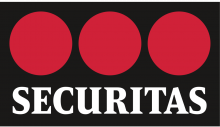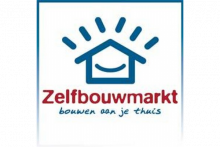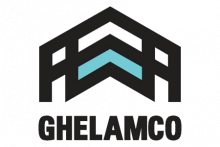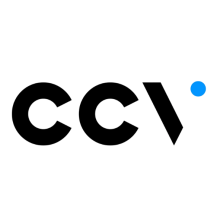MACH vs. Open Source: Who Really Owns Your Data?
The digital world is flooded with SaaS solutions promising to make your life easier. Shopify, Salesforce, commercetools - all claim to offer speed, convenience and scalability. But what happens to your control over your own data? And who ultimately decides which features you can use? These questions are rarely considered - until something goes wrong. And by then? It’s often too late, and more importantly: too expensive to migrate.
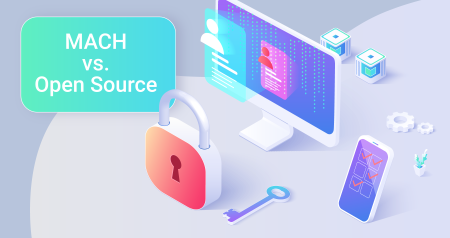
MACH: Flexible, but Dependent
MACH stands for Microservices, API-first, Cloud-native and Headless. In theory, this approach offers maximum flexibility: you select the best solutions for each function and connect them via APIs. Sounds perfect, right? But there’s a major downside: the cloud-native approach often means you're locked into a specific SaaS provider. Want to switch cloud providers? Tough luck. Need a feature outside their ecosystem? Not happening. GDPR compliance? You can only hope your provider has it properly managed.
A recent Gartner report found that 80% of companies using SaaS worry about vendor lock-in. Additionally, Forrester concluded that more than 60% of organizations that chose SaaS later encountered limitations in functionality or integrations. This shows that the convenience of SaaS often comes at the expense of freedom of choice.
SaaS solutions like Shopify even limit you to their own ecosystem. If it’s not in their app store, forget about it. And if the provider decides to remove a feature or integration? You’ll have to live with it.
Open Source: Your Data, Your Rules
An open-source approach means you maintain full control over your technology and data. You decide where to host it, which cloud provider to use, and which partners to work with. In a world where data sovereignty is becoming increasingly important (think GDPR), this is no small detail.
An IDC study found that companies opting for open-source hosting have, on average, 30% lower long-term costs than those locked into a SaaS model. Additionally, companies can respond more quickly to new technological developments since they’re not dependent on a vendor’s roadmap.
Yet many businesses blindly choose SaaS without considering the long-term consequences.
- Hosting? "As long as it works."
- Platform choice? "We’ll go with whatever’s popular."
Until something goes wrong.
And believe us: that’s when data control and hosting suddenly become critical. But by then, you’re stuck. You need to migrate your data, rethink your entire architecture and often hire expensive consultants to break free from vendor lock-in.
Hosting Is a Craft
IT is a vast field. There are developers who write software and infrastructure specialists who keep systems running. Hosting sits precisely at the intersection of these disciplines and requires specialized expertise. DevOps teams at specialized hosting companies bridge the gap between software and infrastructure - something many SaaS providers underestimate.
Take Odoo, for example. They built a fantastic ERP platform, but their Odoo.sh hosting often falls short. Why? Because they are not a hosting company. They know their software inside out, but enterprise-level hosting is a completely different skill set. Companies that try to keep everything in-house often run into the limitations of their own platform. Stick to what you do best.
SaaS Isn't Always Better
Many businesses assume SaaS solutions are cheaper and simpler, but that’s shortsighted. Yes, you generally have fewer worries about maintenance and updates, but you sacrifice control, flexibility and long-term cost efficiency.
- Want to build a custom AI integration?
- Want to choose where your data is stored?
With SaaS, you’re dependent on whatever the provider offers - and whatever they decide to change.
With open-source platforms like Magento (Mage-OS), Shopware, or Drupal e-commerce, you set the rules. You choose your cloud partner, security settings and data location. It might require more effort upfront, but it prevents an expensive migration when your business grows and your SaaS solution no longer meets your needs.
Conclusion: Choose Wisely, Not Conveniently
If you want speed and simplicity in the short term, a SaaS solution might seem attractive. But if you want long-term control over your data, cloud provider and architecture, an open-source approach is often the smarter choice. Because SaaS isn’t always better - it’s just the easiest option until things go wrong.
So think twice before choosing.
Or better yet: think ahead.




